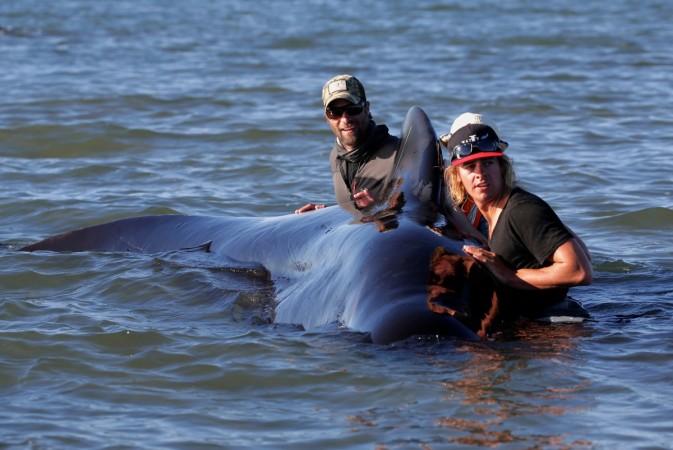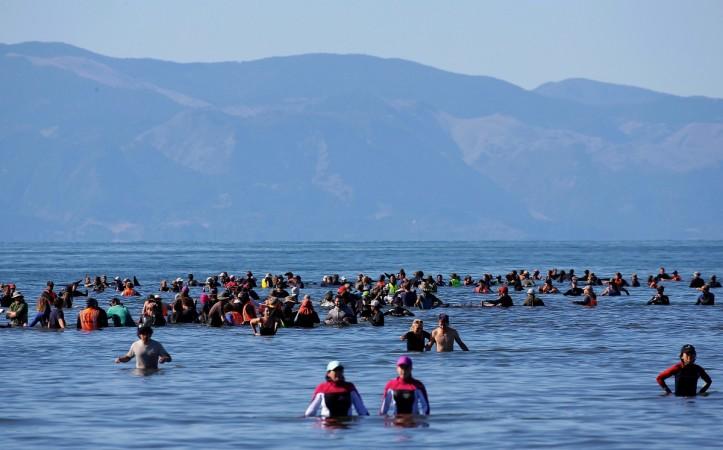
Another 240 pilot whales beached themselves at Farewell Spit in the Golden Bay region of New Zealand's South Island on Saturday, a few hours after volunteers managed to send around 100 whales back into the sea following the initial mass stranding of 416 whales on Friday.
Over the past couple of days, a total of 650 whales have stranded themselves along the Farewell Spit coastline that is five kilometres long and is situated at the northern tip of South Island. Around 335 whales have died, while 220 remain stranded, the Associated Press reported. Around 100 pilot whales from the initial pod were re-floated.
Volunteers also formed a human chain in neck-deep water on Saturday to prevent those 100 pilot whales from beaching themselves again at Farewell Spit. Around 100 volunteers, with the support of three boats, were able to turn the pilot whales away from the shore by blocking their path with success, a statement released by conservation officials said. The whales were sent offshore by mid-afternoon with boats monitoring them as the tide dropped.

Department of Conservation Golden Bay Operations Manager Andrew Lamason told AP that they were sure about the fact they were dealing with a new pod because all the whales from the initial pod that had been re-floated had tags while the ones that stranded themselves on Saturday did not have any tags. He added that around 20 whales from the new group would be euthanised due to their poor health condition.
Volunteers from all over the country had come down to Farewell Spit to help in the rescue operation of the 416 whales who had beached themselves on Friday, majority of those already dead. According to Lamason, the crystal clear water and improved weather conditions helped in the rescue operation. Volunteers will reportedly be returning to the beach on Sunday to re-float as many healthy pilot whales as they can.
Lamason added that volunteers were warned by the conservation department about the presence of stingrays and sharks in the sea after a pilot whale that was washed ashore seemed to have bite marks of a shark. However, no sharks have been sighted yet.

Disposing of the carcasses of whales will also prove to be a challenging task for conservation workers. One way is to tie them to stakes or a boat, leave them in shallow tidal waters and let them decompose. However, this could result in the whales becoming light and gaseous which could make them float into populated bays.
Farewell Spit's long coastline makes it difficult for pilot whales, which are a common sighting in New Zealand's waters, to navigate away from the shore once they get too close. Other reasons why whales beach themselves could be to chase prey too close to the shore or to protect a sick member of the group or to escape a predator.








